Deleuze, the Theology of Money and Global Crisis
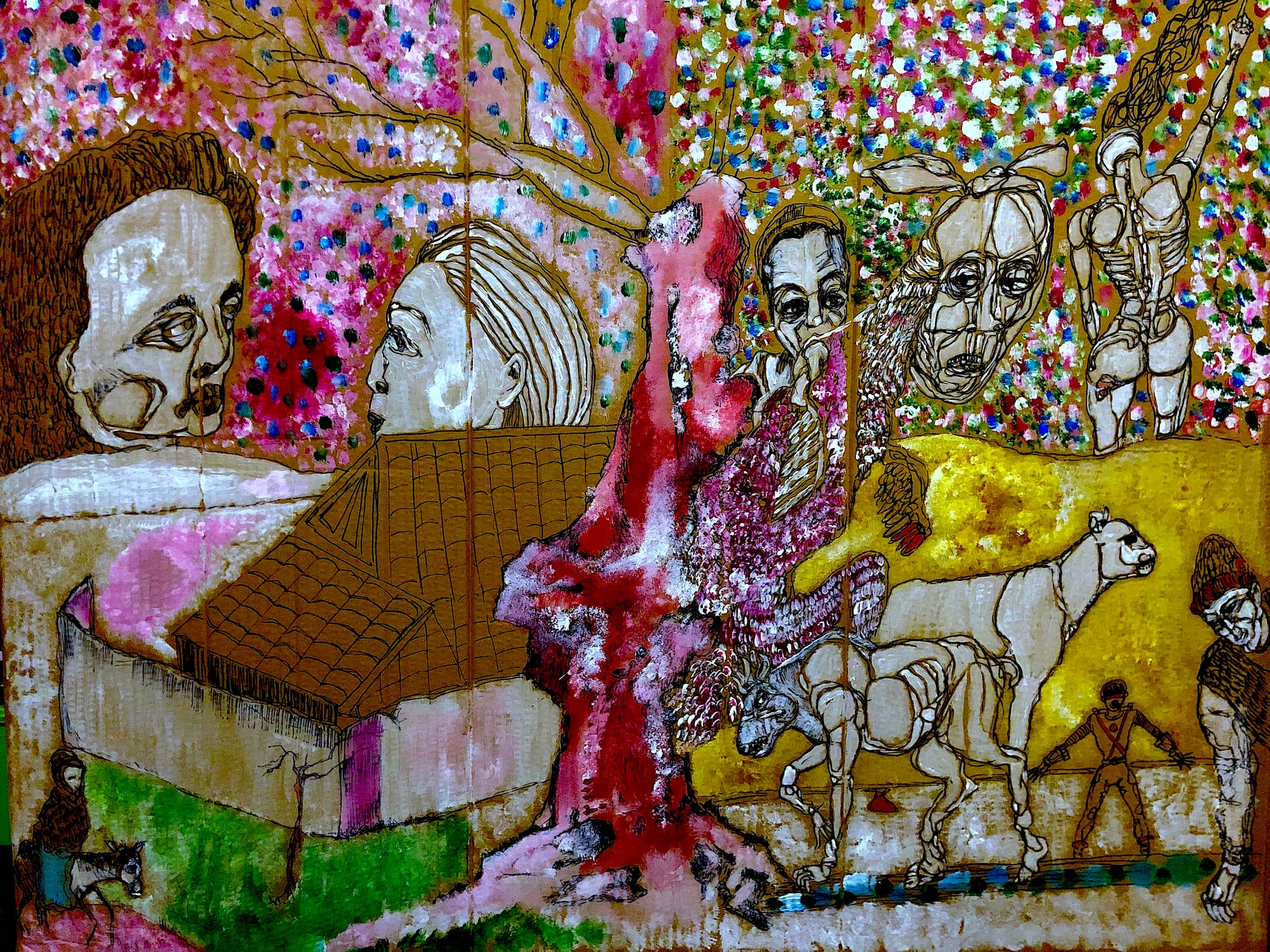
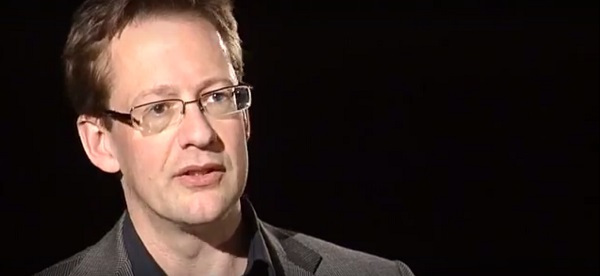
'The fundamental reorientation I took from Deleuze’s Nietzsche was this: life can no longer be made to appear before the categories of thought; instead, thought must be plunged into the categories of life. If the modern disease is ultimately a problem about how we think, then discovering the potencies of different ways of thinking may be the route to cure or redemption. '
'The idea of a free, independent investor is a mere illusion: in practice, we are all constrained by debts, by collective phenomena of trust, and by the sustainability of the fragile financial system as a whole. Even the money one holds that is supposed to guarantee one’s independence consists in a claim on someone else’s debt, for money is created when someone takes out a debt and it is destroyed when balanced against other debts through the clearing system.'
'I’m deeply pessimistic. It is one thing to aspire to turn around a supertanker, which is what our ecological crisis requires. It is another thing to control the rudder and operate the effective levers of power – much as I am in favour of a Green New Deal and other aspects of green economics, I don’t believe they can achieve much more than a renewal of growth and destruction without a thorough change to our money and finance system.'
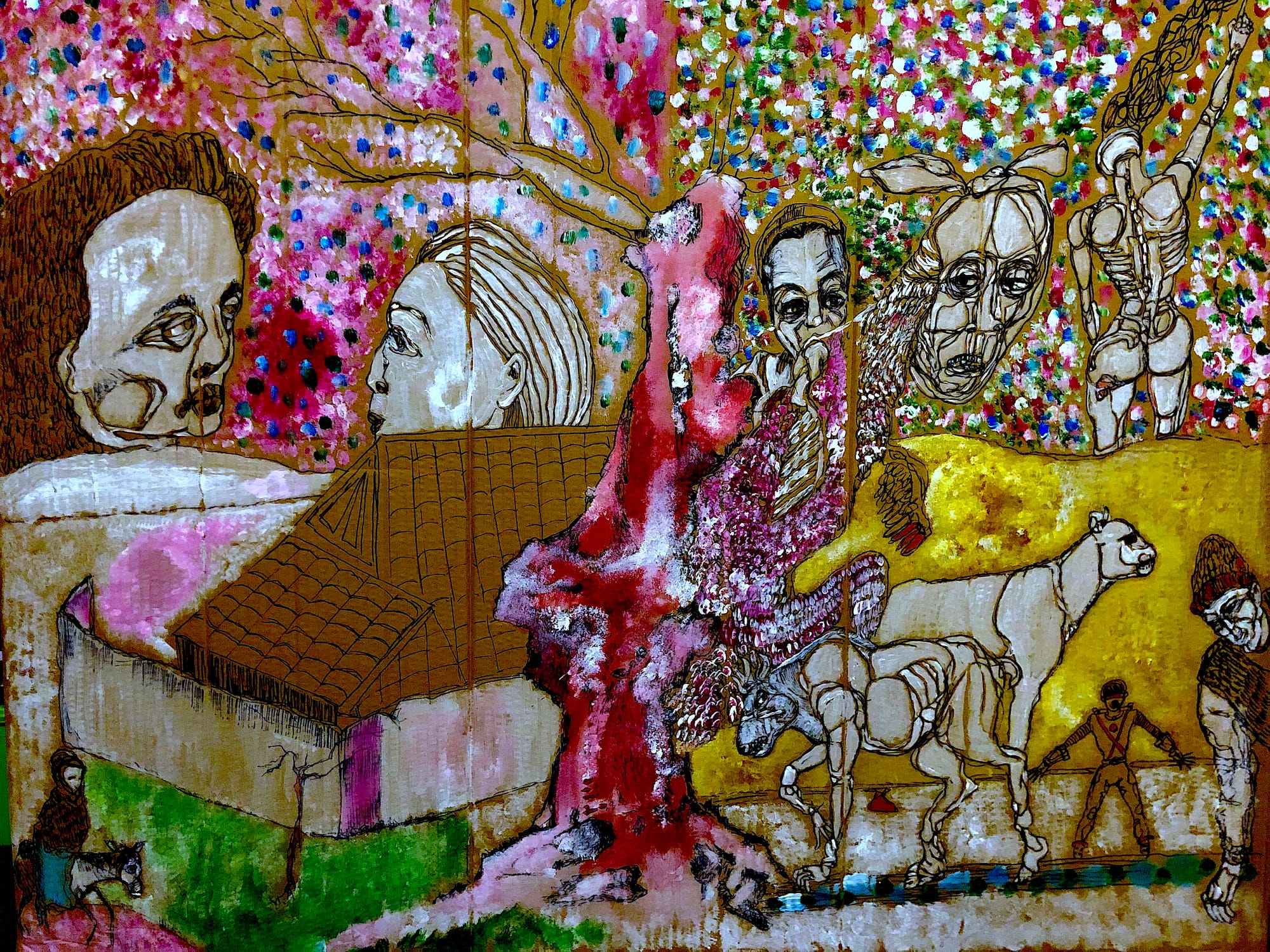
Philip Goodchild's current research is on credit and faith, linking economics and theology. Here he discusses Deleuze, global warming and Capitalism, the relevance of philosophy of religion, piety, the theology of money, reflections on the recent financial crisis, how economists react to his approach, and his pessimism about the future.
3:16: What made you become a philosopher?
Philip Goodchild: As a teenager, I was fascinated by the nature of the cosmos and how it could be understood by such strange, purely theoretical disciplines as relativity and quantum dynamics. Later I became aware of much more significant questions about how humans relate to the world, to others, and to ultimates such truth, beauty and goodness, so I studied theology. Liberal Christian theology, liberation theology, mysticism and interfaith encounter opened up new horizons for me. After graduating, I read Nietzsche, who offered a challenge to everything I had previously accepted, while still developing a profound spirituality of affirmation. The vitality of Nietzsche’s thought, the density and originality of his ideas, and the conversions of perspective it enabled inspired me to wish to think like this too. I suppose I found ideas gripping – my only choice was to find a situation where I could allow them to work on and through me.
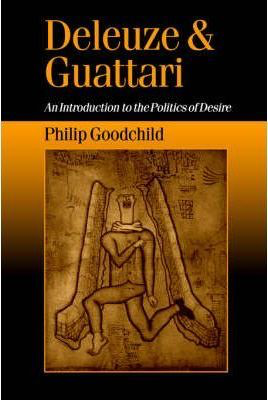
3:16: Your first book was on Deleuze – what was important to you at the time about this philosopher – you’ve subsequently focused on the relation of economics and faith – was Deleuze someone important in honing your focus and if so what are the salient ideas that led to your subsequent work that you found in Deleuze? Is he a religious thinker for you?
PG: If Nietzsche stood out as a prophet announcing an entirely new destiny for thought, Deleuze took up Nietzsche’s affirmative thought and developed it towards a coherent system of creative ideas. While his Nietzsche and Philosophy set out the underlying orientation, A Thousand Plateaus offered an extraordinary accomplishment of playfulness and creativity. I hoped to undergo such a thorough transformation myself by deeply appropriating Difference and Repetition. I learned how to think from Deleuze, breaking with the priority of consciousness or signification, situating thought in relation to an outside and pursuing understanding through immanence. As a result, I became a Deleuze scholar, applying his own style of thinking back to his work, and heading off in my own directions where I eventually found some lacunae. But this transformation had taken me far beyond the frame of comprehension of the modern, Enlightenment-based university as well as beyond traditional metaphysical and religious teaching. I had to find a way to make myself employable and coexist with the system, if I were to continue to have the time and freedom to think, and surviving such coexistence remains a source of anxiety. Most of the thinkers who have stayed deeply with me – Spinoza, Kierkegaard, Nietzsche, Weil, and even Deleuze – have had very tenuous relationships with academic institutions. I took an enormous amount from Deleuze, but his thought on difference, repetition, and exteriority enabled me to focus on money, time and ecology in my own work.
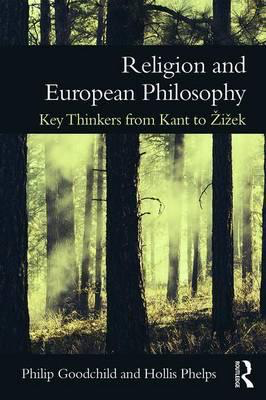
3:16: You argue from an acute awareness of the existential threat to human life that global warming brings and lay the cause of this threat to our modern way of life, in particular capitalism. Most people would agree with that diagnosis. So what do you see as the philosophical questions that bear down on this critical situation?
PG: Let me come at this issue from the direction I approached it: I decided to carve out a niche for myself and others by posing the question of what a continental philosophy of religion might be. Much of European thought has been concerned with religion – Kant, Hegel, Nietzsche and Heidegger are unthinkable without their appropriation of and response to Christianity, just as many other thinkers can be understood through their response to Judaism or French laicism. The typical analytic problems about the plausibility of monotheistic belief were not addressed here. Instead, alongside those working in the wake of Heidegger, Levinas and Derrida as fellow-travellers, I endeavoured to construct my own approach to the field by putting philosophy of religion in conversation with critical theory, broadly understood as including poststructuralism as well as philosophical appropriations of Marxism.
While working on this project that the publisher entitled Capitalism and Religion (2002), the existential threat arising from modern ways of life (although I had been aware of it since the 1980s) struck me with renewed vigour. The link between global heating and capitalism may be widely accepted now, but in those days capitalism was normally regarded as the means to address any possible problem. What was most thought-provoking was the human inability to think rationally and change behaviour. Significant environmental damage had only occurred on a large scale since around 1950, so it should hardly have been inevitable or irreversible. The analysis I offered was that capitalism was as much an ordering of thought as it was of land, labour and money, and this framework of thinking, once developed, imposes itself upon us irrespective of our wishes as if it held a life of its own. Philosophers such as Spinoza, Marx, Adorno, Heidegger, Levinas, Derrida and Deleuze gave me resources to understand and critique this ordering of thought, but my work started to take on its own direction too. The critical question is how to liberate thought itself from an impersonal process that gives it order.
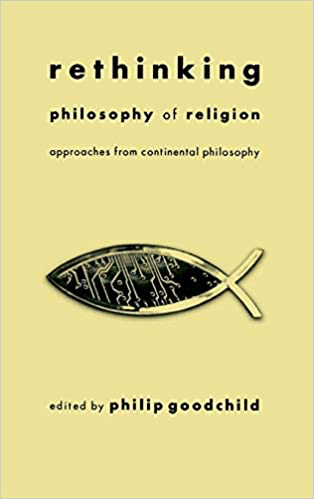
3:16: You give God a significant place in your revaluation of values that the crisis requires, but the obvious rejoinder is that most of us gave up on God a long time ago. You seem to take that in your stride – is it your point that atheists and non-atheists both live as if there are eternal truths – and that secular reason is therefore resting on theological foundations it can’t sustain without God?
PG: I would resist your first point, but concur with the second. No, I gave significant places to attention, awareness, and the potency of thinking in this revaluation of values and I have always been reticent to speak directly about God in my work. Part of the aim of this project was to place a transcendent, hierarchical or providential God on trial – as one does in philosophy of religion – in order to allow more immanent categories of divinity to emerge. Part of the aim was to deconstruct any sharp distinction between the secular and the religious: we all have determinate practices of directing attention, which in turn shape what we notice, take into account, and overlook. The critique of modern thought I offered is that, despite its self-image, it is largely an excuse for overlooking reality by short-circuiting it. Some might speak of evidence, others of possible worlds, and others of divine revelation – in any case, the effect is usually to obscure the actual and mutual relations between thinking, action and environment that perpetually reconstruct our world. The fundamental reorientation I took from Deleuze’s Nietzsche was this: life can no longer be made to appear before the categories of thought; instead, thought must be plunged into the categories of life. If the modern disease is ultimately a problem about how we think, then discovering the potencies of different ways of thinking may be the route to cure or redemption.
None of this is hostile to God as metaphysically conceived – there are those who have told me they have been converted back to religion by this book – it is simply a matter of offering categories such as attention, awareness, and potency in thought through which divinity can be reconceived and better understood.
3:16: What do you mean by piety in this context?
PG: By ‘piety’, at this time, I designated any determinate practice of directing attention. Nowadays I prefer to quote an insight from Kierkegaard: if life can only be understood backwards, it has to be lived forwards. There is a whole dimension of thoughtful engagement with reality involved in spending time and giving attention, in offering care and enabling cooperation, and in expressing trust or taking up an obligation, which cannot be reduced to either knowledge or action. This future-oriented dimension is manifest above all in how we give credit or take things for granted, how we spend time and pay attention, and how we orient ourselves in faith with respect to what matters, what is reasonable and what is true. It seems to me that religious thought – theistic or otherwise – has always been concerned with this dimension of experience which might be properly designated as theological, to distinguish it from knowledge, morality or politics. Insofar as we are not perpetually distracted and seek to determine our own experience, we all live by a ‘theology’ in this precise sense.
3:16: So what are the key elements of what you call a theology of money – and why do we need to understand this in our present crisis? Is it through money that we understand the value of values manifest in human life?
PG: There is a certain everyday usage of property deeds, account books, paper money, and central banks that determines the live and credible options for moral values, political institutions, the construction of knowledge, and especially the ordering of time and attention, trust and cooperation, care and concern. In other words, just as there is a theology preached in sermons and written down in books, regulating private prayer and public worship, there is also a theology implicitly written on banknotes and economic institutions. For debt is a theological issue: it is a matter of to whom one owes obligations, in what order of priority, and to what extent (and this was a matter of primary concern in the New Testament).
Now, we have a variety of systems of accountability in order to extend trust – trading regulations, auditing, accounts books – even money can be viewed as a system of recording and counting value. Someone is usually paid money if they have performed a valuable service to others, or if they’ve lent or invested their resources to enable others to produce. This gives a credit or ticket entitling them to make demands on others.
Why think of this in terms of theology? (1) The value of money itself is transcendent; it cannot be seen. One trusts in the value of money, but if one tries to verify that value by exchanging it, the price one receives is a measure of collective faith in money. There is no other independent measure for money. (2) Money becomes supremely important because it is at once what measures value, what stores it, and what enables one to access value – whatever cooperation or collaboration with others one seeks, acquisition of money has to come first. So it starts to rule theoretical thought and practical conduct as the framework for thinking and action – you have to make sure that your conduct is profitable or attracts investment. Money provides an impersonal order for distributing care and cooperation, time and attention – money is, above all, what counts. (3) Money designates the value of assets, but the value of assets is speculative – things are worth what someone will pay for them, and what they pay depends upon their estimates of future yield. If you reorder the world around profit, then you substitute an imaginary future for existing reality and this is a way of orienting oneself in faith. (4) This outlook is not merely a choice. Money offers an impersonal framework of thinking and action which has to be adopted if one is to be influential and effective – it is enforced by a logic of natural selection. Those who reject it become insignificant; those who adapt to it gain power and make key decisions to advance the power of money. As such, money is not simply an ideology – it is an impersonal power that gets into people’s minds and shapes their thoughts and action. This affects us all – even those who try to opt out still have their needs met largely through a monetary economy.
3:16: What has the recent financial crisis shown us about our current situation, in particular the importance of debt – how does redemption from debt involve a restoration of our capacity to judge intrinsic values rather than mere prices, as you put it?
PG: The financial crisis has disclosed something about the nature of capitalism – it is founded on debt. Capitalism is normally understood as the accumulation of capital – that is, of the means of production, whether land, resources, property, machines, skills, or money. Those who own it are assumed to be free to do as they please with it, within the confines of the law. What they can do, however, is either produce for the market, sell it in the market, or invest it for the sake of profit: capitalism is intimately linked to the free market. Now the majority of economic transactions are no longer free in this way: they involve the fulfilment of contracts, the delivery of services, or paying rents, wages, bills, dividends or interest. These are not free, instantaneous exchanges, but are enduring contracts – one might have agreed them at some point, often as the only way to meet one’s own needs, but afterwards one is indebted, subservient to a promise once made. In finance, one person’s asset consists in another’s obligation – the essence of finance is debt. These debts may have been issued against collateral, whose value drops enormously when all seek to sell at once, or against promises of future payments, which are no longer possible to fulfil when work and trade dry up, or on the basis of insurance, which instead of distributing risk allows it to gather with the underwriters.
So the idea of a free, independent investor is a mere illusion: in practice, we are all constrained by debts, by collective phenomena of trust, and by the sustainability of the fragile financial system as a whole. Even the money one holds that is supposed to guarantee one’s independence consists in a claim on someone else’s debt, for money is created when someone takes out a debt and it is destroyed when balanced against other debts through the clearing system. In these respects, far from capitalism being the ideal framework for property, liberty and equality, it is also characterized by debt, constraint, servitude, and instability.
What is required, here, is above all a shift in perspective. If one thinks of credit as the obverse of debt, in terms of money, then one will think like a debtor, under all sorts of constraints. If, by contrast, one thinks of credit in terms of time – for time, once spent, can never return at a profit since you can only live through the same episode once – then the actual allocation of time and attention, care and cooperation, trust and obligation is something that only exists insofar as it is given. This dimension of reality cannot be exchanged or substituted for; it cannot be priced in terms of money. In these respects, economic life needs to be understood in terms of a theology in addition to being understood through economics. Redemption is best understood neither in terms of the paying off of debt nor in terms of the abolition of debt through default or forgiveness; it is a shift in perspective such that credit becomes thinkable apart from debt.
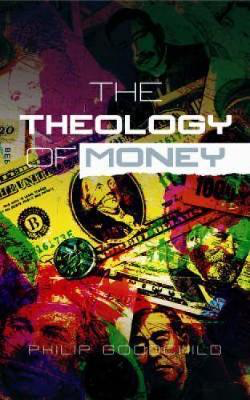
3:16: In answering the question ‘what’s wrong with the global financial system?’ you answer it in terms that aren’t those of the economist – what kind of response to your ideas have you got from economists who on the face of it are trying to answer the same question?
PG: The phenomenon of global financial collapse is a direct prediction of this analysis of the dynamics of capitalism. What has held the system together since 2007 is the direct and substantial action of central banks and sovereign states. Central banks, in particular, have been the ‘debtors of last resort’ – able to print obligations, through quantitative easing, which they never need to honour since their own debts are recorded on their own account books, and never leave their premises. Likewise, sovereign states which operate their own currencies can massively expand their debts, as we have seen once more in response to the Covid-19 pandemic, without undermining the bondholders’ perceptions of their abilities to pay. Nevertheless, there are constraints even here, for once the overall debt ratio with respect to GDP crosses a certain threshold, there is no profit left with which to stimulate economic growth. To keep the fragile financial system afloat, everything else is sacrificed – biodiversity and a stable climate, equity in distribution, and long-term planning for short-term survival. The system is too big to fail – we cannot live with it or without it. This leads me to be very pessimistic for our environmental, economic and political futures.
The response I’ve had from economists is mixed: when I say that our current economic system is nothing like a free market but is instead an autonomous machine of debt, some try to persuade me that markets do indeed exist (which is hardly the point); most find my somewhat deductive (i.e. philosophical) method entirely alien, having long since moved on from deductive economic laws to evidence-based models and so do not engage; a few, including game theorists, get what I am saying and confirm they think I’m right. I’ve had much more positive responses from theologians and other Christians and Muslims – these are people who have a foothold in another framework of thinking not entirely determined by capitalism.
3:16: As a take home, could you say how would you summarise your views regarding global finance and the ecological situation we’re in? Are you pessimistic?
PG: Yes, I’m deeply pessimistic. It is one thing to aspire to turn around a supertanker, which is what our ecological crisis requires. It is another thing to control the rudder and operate the effective levers of power – much as I am in favour of a Green New Deal and other aspects of green economics, I don’t believe they can achieve much more than a renewal of growth and destruction without a thorough change to our money and finance system. It is yet another thing to replace the ship’s compass, or realise how radically our thought needs to change. Such a conversion is the hardest of all, yet the least costly and the most significant. It is such a conversion that I am trying to articulate in my current work on credit and faith.
Such conversion can begin with the simplest of insights: there some goods which can be thought of as property – they can be mine only if they are not yours – and the distribution of these forms the subject matter for economics. There are other goods in life that only exist in so far as people collectively participate in them, such as ideas, contracts, institutions, or the value of money – they can be mine only if they are also yours – and they are the subject matter for politics and ethics. Yet there are also goods which can be mine only if I spend or offer them, and this very act of offering distributes credit, attention and faith. Time is paradigmatic here: the time I spend is the only time I have, and the life that I receive is the life that I spend in acts of offering. Such goods can, and should, be the subject matter for theology. These latter can become determining in the last instance. Since trust is the basis for all cooperation and wealth, a renewal of how we think about trust – founded on the model of credit or offering, rather than on the model of debt and constraint – could rapidly transform everything.
3:16: And for the readers here at 3:16, are there five books you can recommend that will take us further into your philosophical world?
PG: My philosophical world is a rather unique one produced through my own writing, expressing a perspective from which everything in life looks different. After a couple of books that set out the nature of and need for such a transformation, I would therefore have to cite my own:
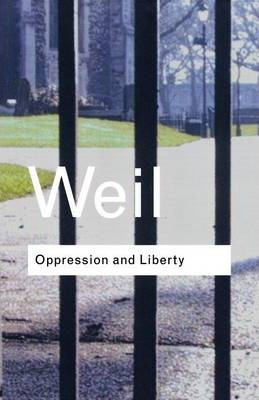
Simone Weil, Oppression and Liberty (1934)
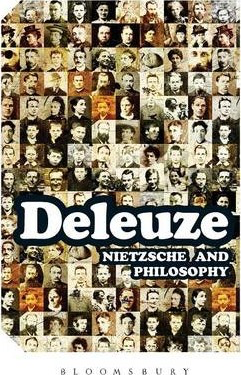
Gilles Deleuze, Nietzsche and Philosophy (1962).
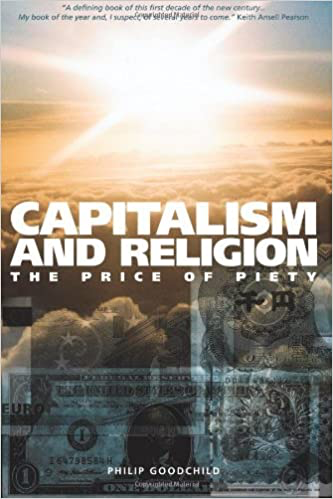
Philip Goodchild, Capitalism and Religion (2002).
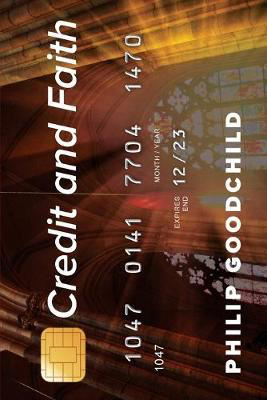
Philip Goodchild, Credit and Faith (2020).
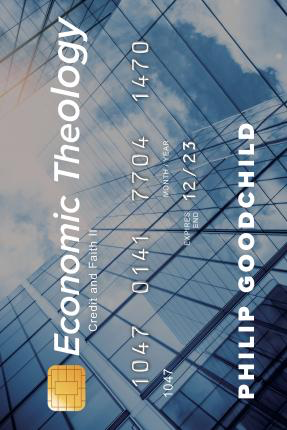
Philip Goodchild, Economic Theology: Credit and Faith II (2020).
The third of this trilogy, Metaphysics of Trust: Credit and Faith III , will soon be submitted to the publishers.
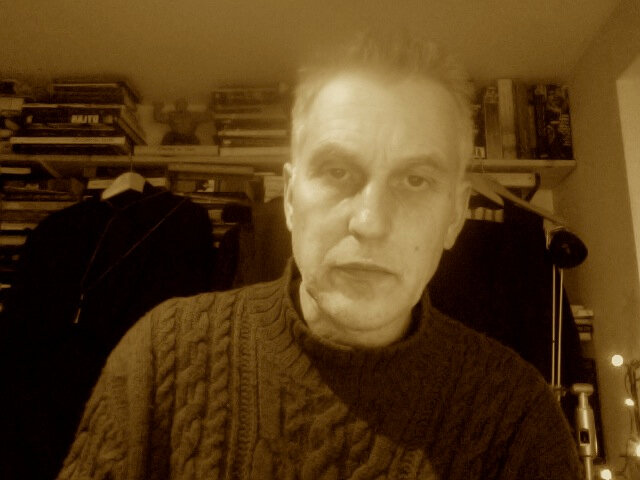
ABOUT THE INTERVIEWER
Richard Marshall is biding his time.
Buy his second book here or his first book here to keep him biding!
End Times Series: the index of interviewees
End Time series: the themes
Huw Price's Flickering Shadows series.
NEW: Steven DeLay's Finding meaning series
NEW Josef Mitterer's The Beyond of Philosophy serialised